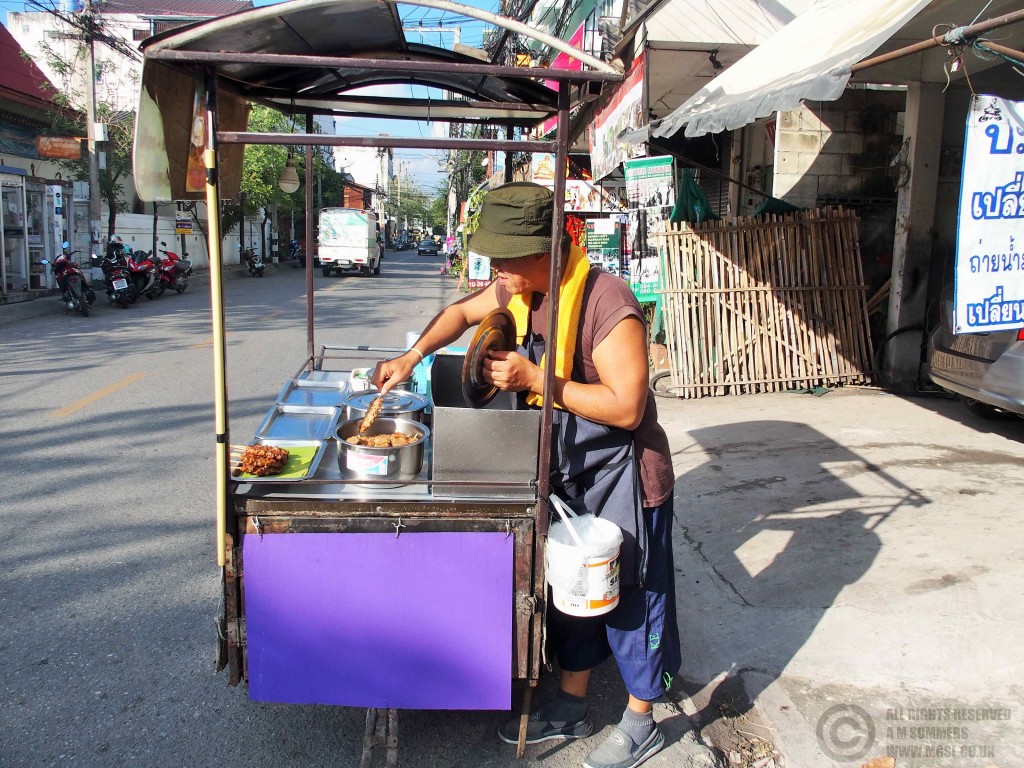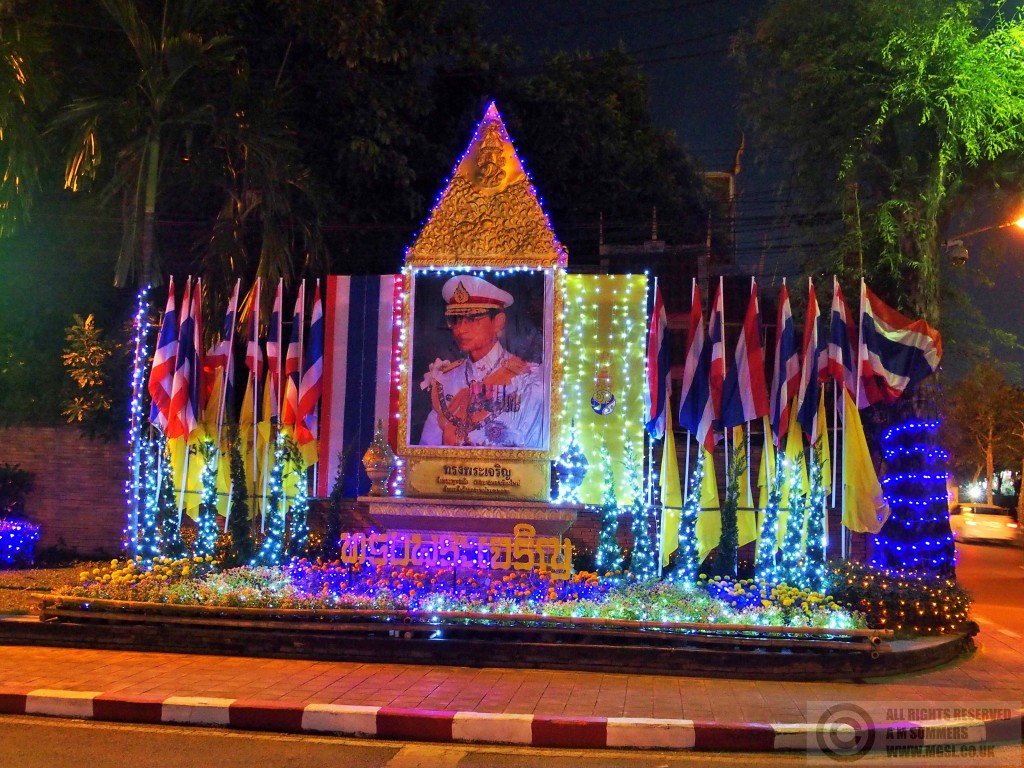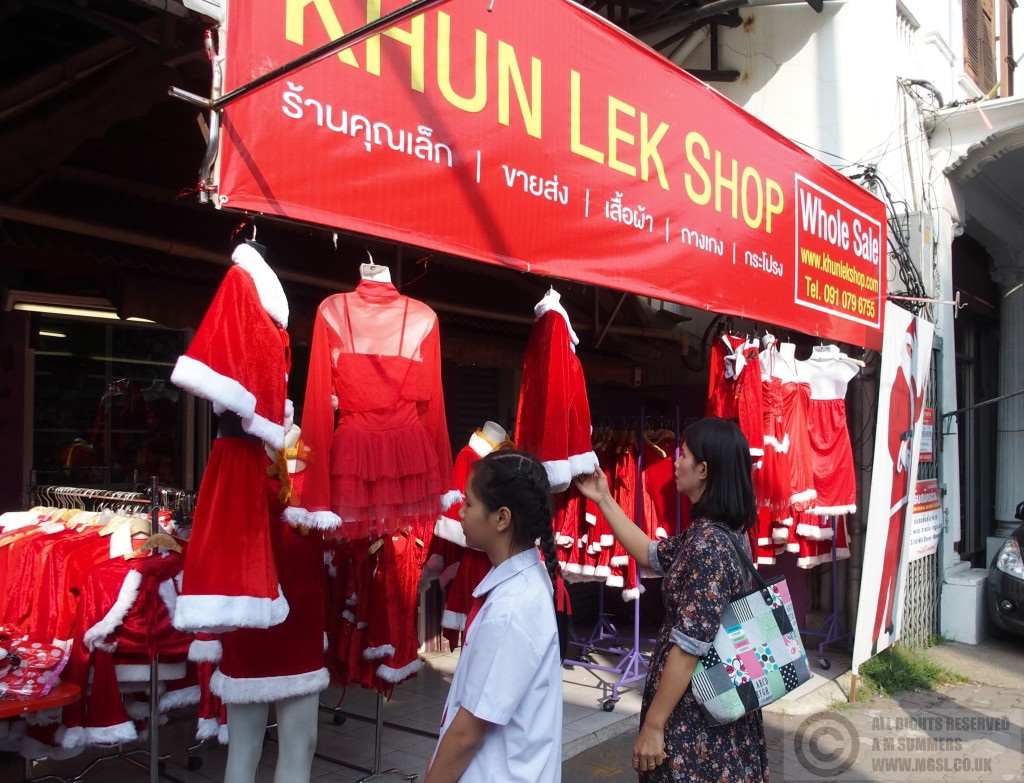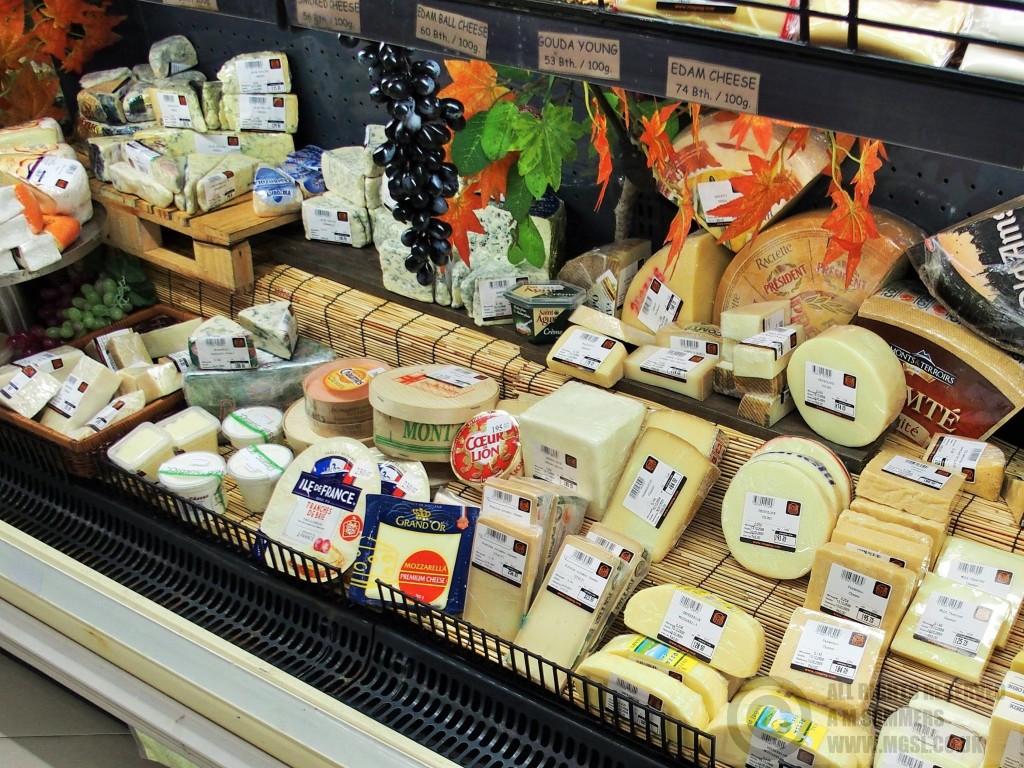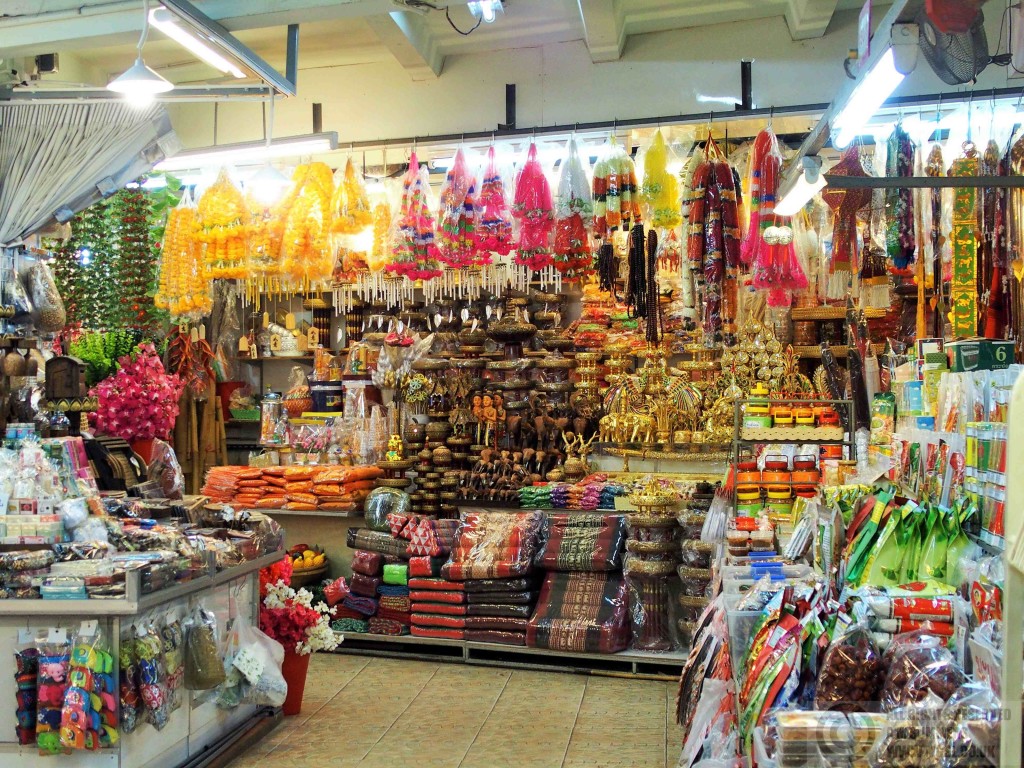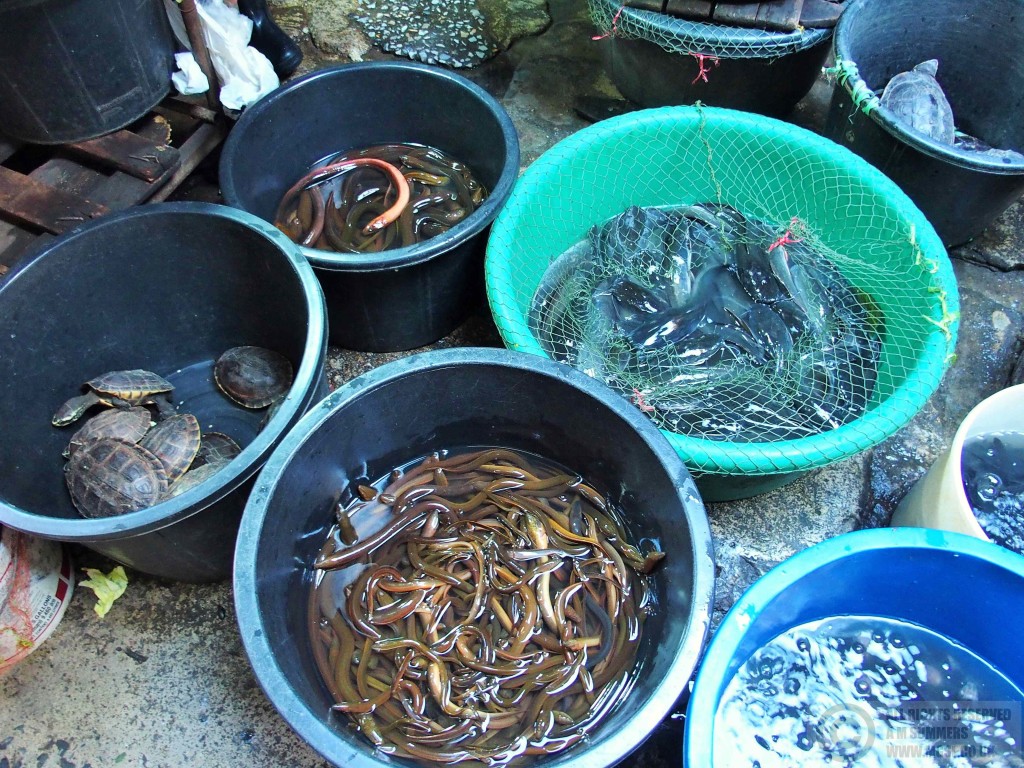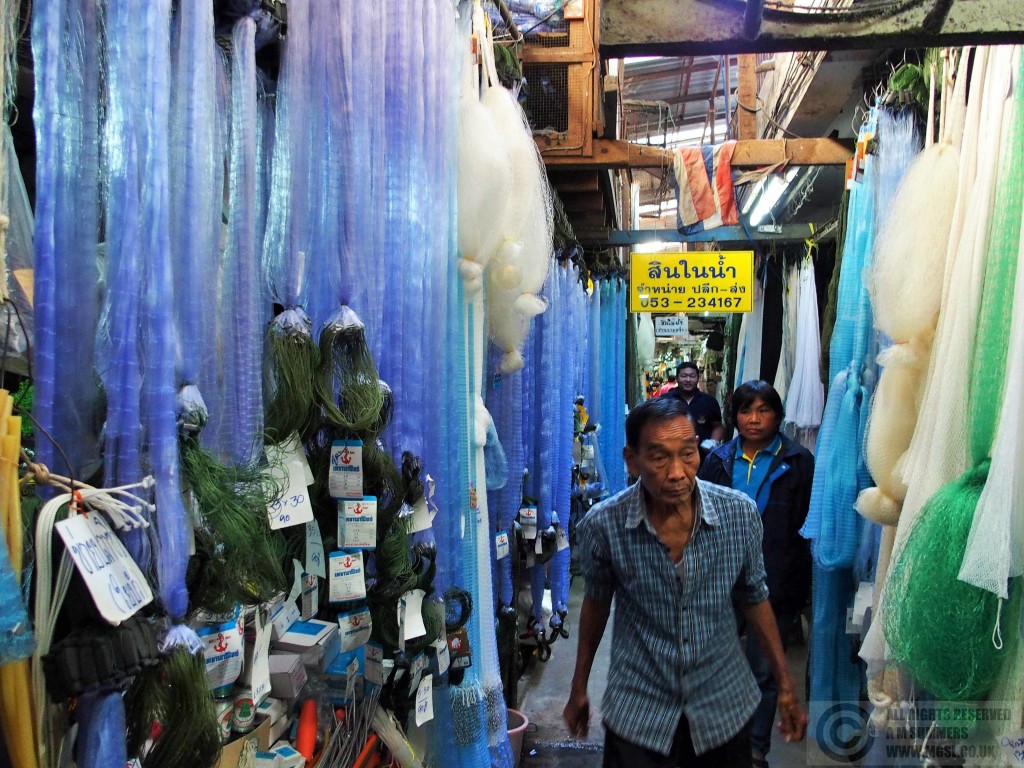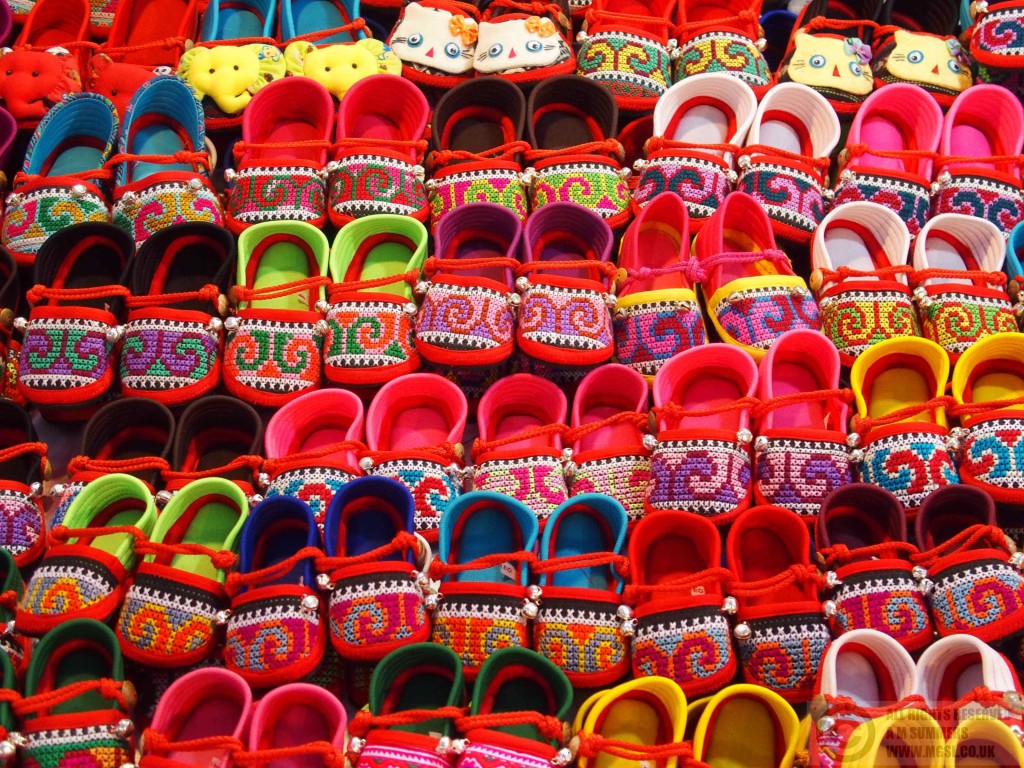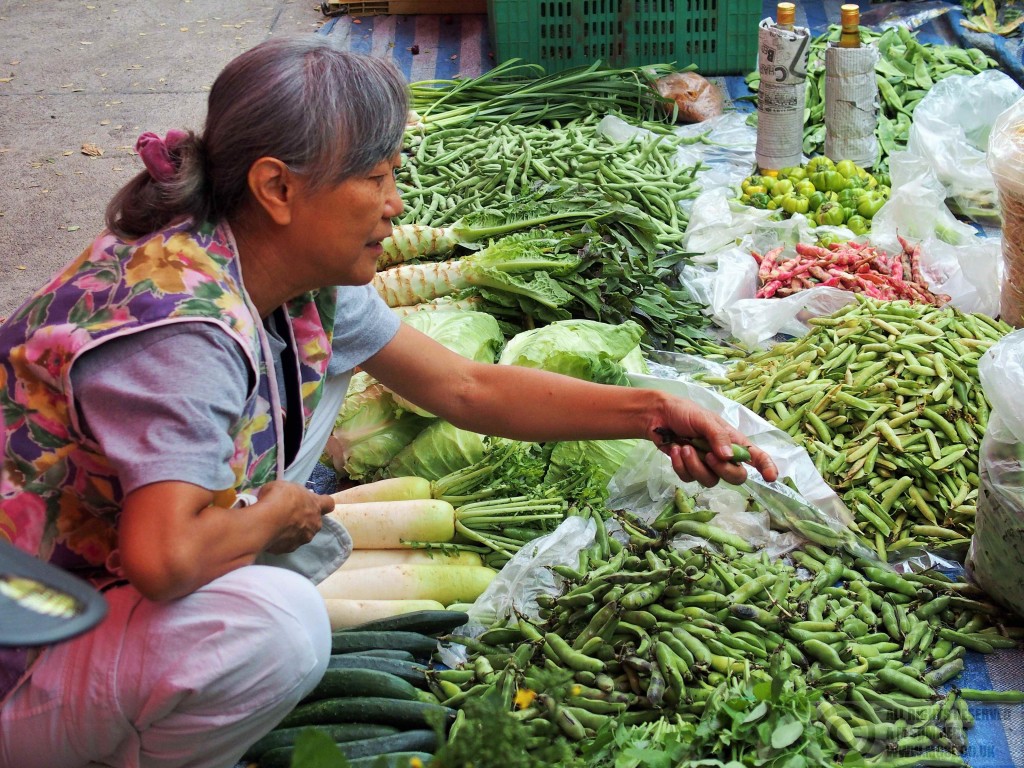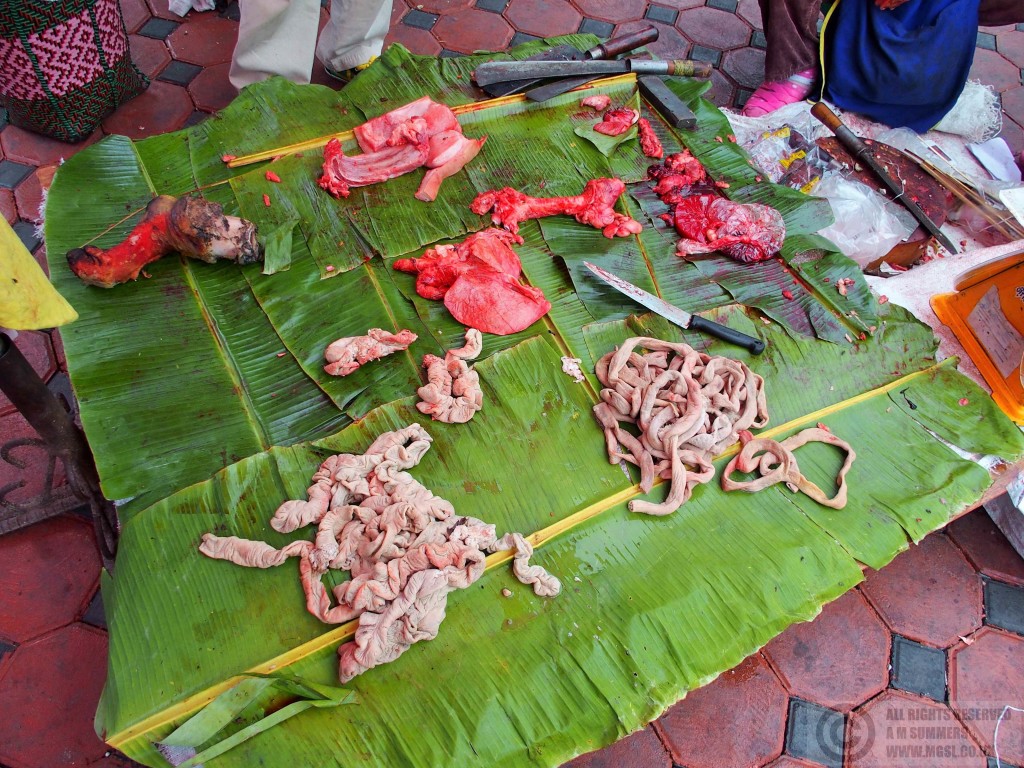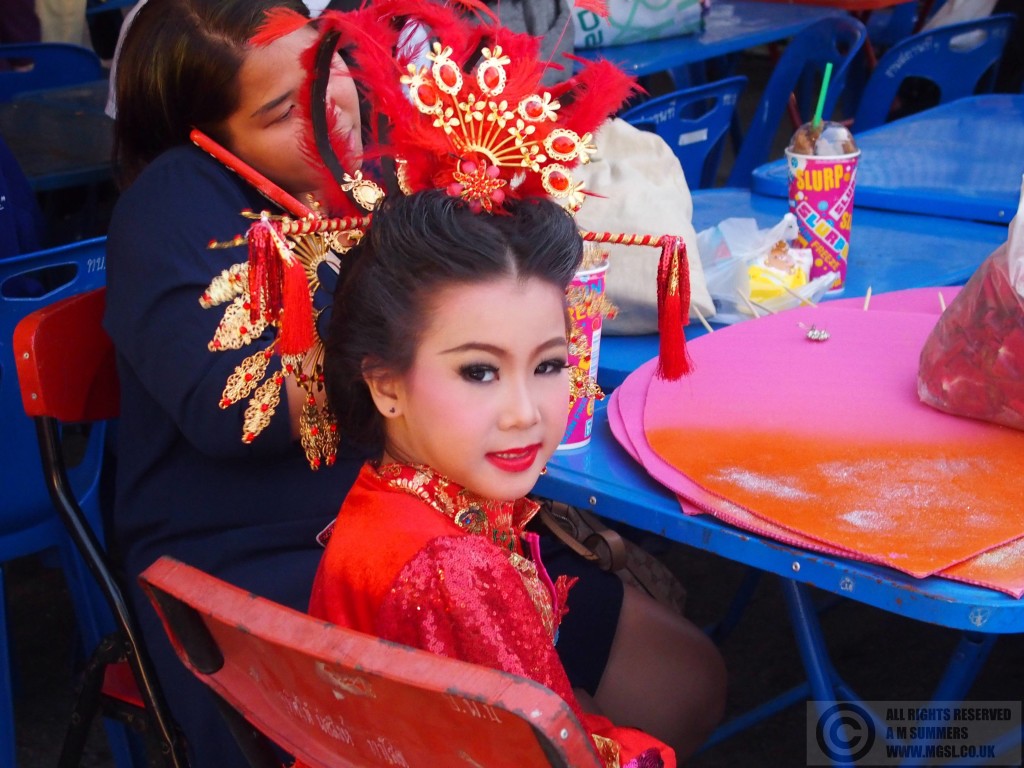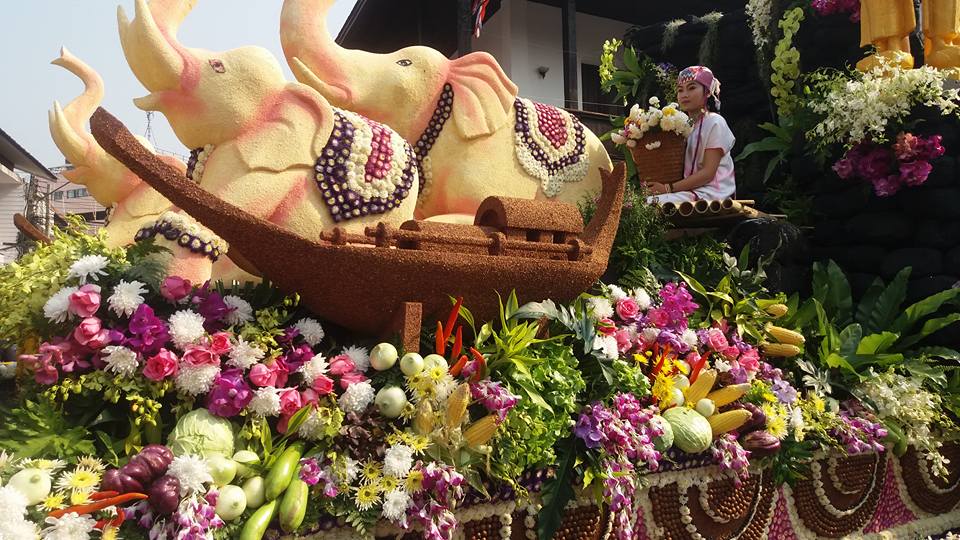About a week after we moved into Doi Ping Mansion, the residents’ Christmas party took place. Food contributions were invited, but it seemed that drink would be provided – sure enough, we saw a barrel of lager being set up (and sampled) by the condo staff during the afternoon. We dressed up as far as our limited resources allowed (for me that meant a pair of earrings and lip gloss, basically!) and joined the quite considerable crowd, mostly a mix of western couple of similar age to us and western men with younger Thai wives/girlfriends, with a sprinkling of Japanese. Once we had our food and a glass of red wine we headed for a table near the pool, away from the uncomfortable noise levels of the main lobby. I don’t remember all the people there, but we immediately hit it of with Denise and John, an Australian couple, and Jen and Dave, originally from Zimbabwe but now also living in Australia.
We ended up with an invite to Denise and John’s for Christmas lunch, taking vegetarian contributions so that Mr V would be sure of something to eat. Jen and Dave were lunching elsewhere, but we had a good time with the dozen or so other guests. Most had been in Chiang Mai for a few years, at least on a part-time basis, spending half the year there and going elsewhere for the smoky, hot and wet seasons.
Once the excitement of Christmas and New Year was over we settled into our routine. Although eating out in Thailand can be very cheap, we self-catered. Rimping is a Chiang Mai supermarket chain, and there was a branch on the far bank of the Ping river, just a short walk away across the Iron Bridge. It was an amazing place that sold just about everything that Chiang Mai’s expats might be craving – although the prices for some things did make us decide that perhaps we didn’t really need them after all.
Vegetables were cheaper (although not necessarily better) in the labyrinthine Warorot Market, a 20-minute walk into ‘Chinatown’. Warorot Market covers two large blocks by the river – the two halls are of similar design, the central area piled with dried fruit, dried seafood, and dried stuff of uncertain origin. I often got confused about which one I was in, and which one I needed for ‘kitchenware alley’ or the sole Indian spices stall. Tacked on to the side of the eastern hall was the market for fish, meat and veg (mostly closed by lunchtime, and beyond that the flower market. Fruit, for some reason, was banished to an outside edge. The streets around the market were home to dozens of fabric shops and Chiang Mai Plastics, a warren-like hardware store that every resident knows. If Warorot doesn’t have what you’re looking for, the chances are it doesn’t exist in Thailand. The problem is in finding it.
Another option for vegetables was the JJ Organic Market, held on Sundays. It was a little out of town but Pat, our lovely landlady, took us one week. The produce here was both cheap and good, and then Pat took us for brunch at a German place in the old town.
We were also frequent customers at l’Opera, a patisserie run by a French guy just round the corner from our apartment – baguettes, croissants and occasionally wonderful little quiches – we didn’t have an oven, but reheating slowly in a frying pan kept the pastry crisp.
Every evening several night bazaars set up in the streets near Doi Ping Mansion. We made the obligatory visit but really they weren’t of much interest to us, as the stuff on sale was mostly clothes of the baggy elephant-print harem pants variety, T-shirts, and tourist souvenirs. The carved soap, tealight holders and woven bags were attractive enough – we just weren’t in the market for Stuff.
The most interesting market took place on Friday mornings just off ‘Halal Street’ near the Mosque. Here hill tribe people came to sell their produce, include types of fruit and veg that we never saw elsewhere and still haven’t been able to identify.
I attended Thai lessons in the nearby Panthip Plaza mall 3 mornings a week during January. I didn’t learn as much as I hoped though (I find tonal languages especially difficult), but at least I got the numbers and some basic phrases. Unfortunately numbers dwindled as people dropped out during the course, and as soon as it finished the Immigration Department closed down the school! Presumably it had not been reporting those students on education visas who were failing to attend class.
There were ‘outings’ of course (up Doi Suthep mountain, to the umbrella village of Bosang, to a hill tribe festival), but mostly we just explored Chiang Mai on foot. The famous wats in the old town were just about within walking distance, and the narrow lanes within the walls were a pleasant place to wander, especially in the morning before it got too hot.
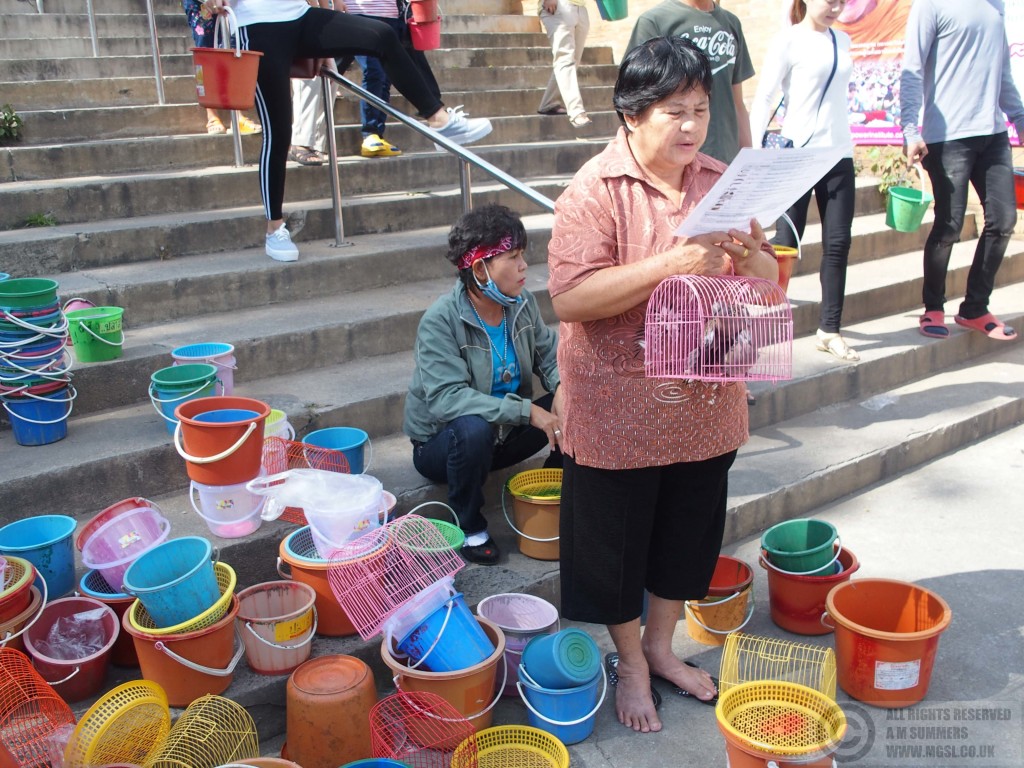
New Year prayers – releasing the caged birds is supposed to earn merit, but encourages a trade in trapping birds
For most of our stay the weather was pleasant – sunny, but not scorching. When the thermometer dipped below 20°C my Thai teacher turned up in a padded jacket, which I thought was a bit of an over-reaction. But in late January the temperature plummeted to around 12°C and rain set in – with no heating and balcony doors that didn’t close properly, we spent several days huddled under the duvet watching TV. We had to come out eventually in order to go and get our visas extended at the Immigration Office. But ‘winter’ didn’t last long – she sun was back out for Chiang Mai’s famous Flower Festival at the beginning of February and, by the time Chinese New Year came around, it was warm enough to dine outside by the river, waiting for the firework display (which absolutely deafened us, as it was let off from only a few yards up the riverbank).
By the end of February it was getting hotter and our friends in Doi Ping Mansion started to leave, before the smoky ‘burning season’ set in. We went and got visas from the Chinese Consulate, and then it was time to give the flat a good clean and pack our stuff. The 3 months seemed to have gone really quickly, and I can understand why so many expats settle in Chiang Mai – it’s a very pleasant, friendly, easy-to-live-in place. But I can also see why they leave for part of the year. The airport is very close to Doi Suthep, but on the day we left the mountain was hardly visible through the haze, and the air quality readings got much worse a few days later. I was sorry to leave the Chiang Mai life, but we might have been sorrier if we’d stayed.


